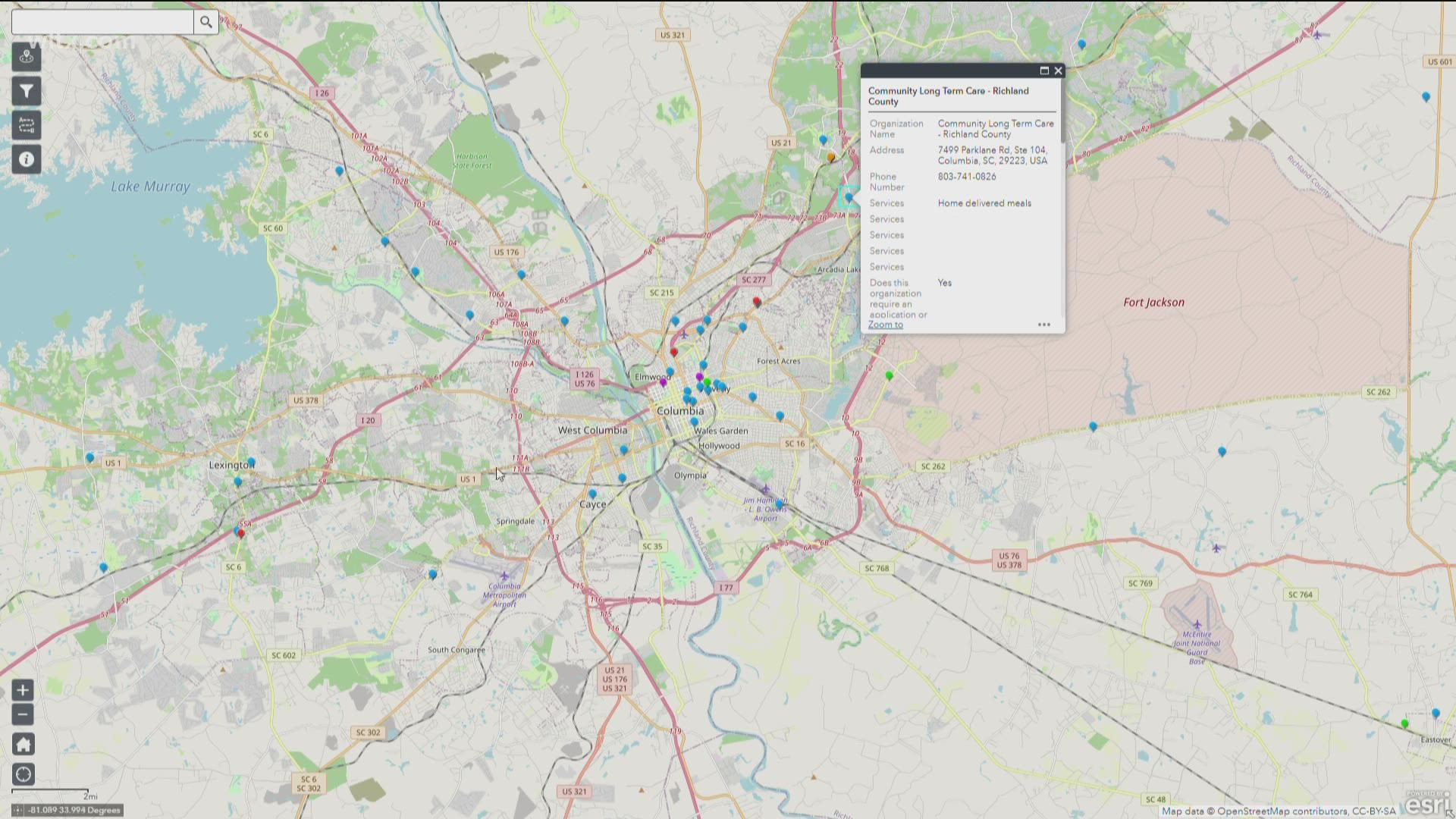COLUMBIA, S.C. — The College of Behavioral, Social and Health Sciences (CBSHS) at Clemson University has partnered with South Carolina Department of Health and Environmental Control (DHEC) Environmental Affairs to create a new online resource for those families facing food insecurity.
The Food Access Map can be used to locate over 900 food pantries and other food sources, and local offices of DHEC and Department of Social Services (DSS) throughout the state. The map originated two years ago by CBSHS, Ten at the Top, and the United Way of Pickens County and was expanded to include all 46 counties in South Carolina. It was funded by the EJ Strong: Strengthening Environmental Justice Communities for Disaster in South Carolina grant received by DHEC.
“There are individuals and families in the state who face food insecurity even at the ‘best’ of times,” Leslie Hossfeld, Dean of CBSHS, said. “A crisis such as the COVID-19 pandemic only makes clearer the need for good, reliable information on what type of help is available and where to find it. This map has been put in place to serve as a repository for that information.”
In South Carolina, nearly 490,000 people face hunger or food insecurity, according to Feeding America, the largest charity working to end hunger in the United States. Food insecurity means the lack of access to healthy foods such as fresh fruits and vegetables that are integral to living a healthy lifestyle. Currently, four food banks in region are affiliated with Feeding America -- Harvest Hope in Columbia and Lowcountry Food Bank in Charleston, Golden Harvest in Augusta, and Second Harvest Food Bank of Metrolina in Charlotte -- and work to serve large areas of this state.
“The EJ Strong Food Access Map is an innovative tool that empowers communities by providing information on resources available to combat food insecurity,” said Myra Reece, DHEC Director of Environmental Affairs. “I value the partnership between Clemson and DHEC and appreciate Clemson’s amazing commitment to serving communities across South Carolina.”
Although the Food Access Map is very detailed, and students at CBSHS have worked diligently to verify and update the information, it is by no means complete. It will remain a work in progress as more sites are added and the resource is kept up to date. Any agencies not currently represented on the map that would like to provide their information for inclusion should email foodaccessmap@clemson.edu.

